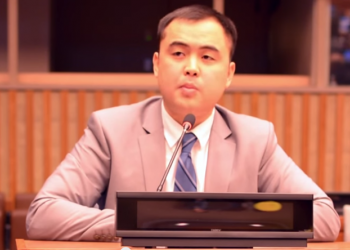Social Development is not just about passive aid
In a variety of ways during the 53rd Commission for Social Development, the Baha’i International Community suggested that social development can advance significantly only by drawing on the untapped human potential of those who have too often in the past been seen as only passive beneficiaries of global development programs.
This idea, for example, was at the heart of a statement issued by the BIC to the Commission, which ended its annual session last Friday.
“Structural reform is necessary in many areas,” said the BIC statement, titled Unlocking Human Capacity as a Driver of Social Development. “But it is people who enforce regulations or ignore them, who translate plans into action or hesitate on the sidelines, who uphold positions of authority or abuse them.
“The ability of people – individually and as members of communities and institutions – to achieve something they collectively value is therefore an indispensable means of meeting the Commission’s central objectives of eradicating poverty, promoting full employment and fostering social integration,” said the statement.
The statement was also presented in an abbreviated form to the Commission as an oral statement on 9 February. A video of that presentation, which was made by Serik Tokbolat, a representative of the BIC to the UN, can be viewed here.
“It’s not about what you have in terms of material possessions that defines how you can contribute to the social development of your community or of your nation,” said Mr. Perell.
“It’s about the volition that you take in terms of putting forth actions for the betterment of your community. And that, like financial and technological transfers, these sorts of ideas should be articulated a bit more clearly” in what emerges from the UN.
Added Mr. Tokbolat: “If you look at the village or the grassroots level, an individual there might take action that can cause a great impact on his community.”
A third major element of the BIC’s contribution to the Commission this year emerged in a side event, held 11 February, at the BIC’s New York office.
That event asked participants to reflect on a series of stories about social development and to share with others their thoughts. This led to a fruitful conversation about the power of individual and community action, especially when guided or encouraged by institutions. Among the thoughts shared were these:
“If you want change in your community, those changes need to be made step by step and we need to make sure every person is responsible for that change,” said Papa Thiecoro Dembele. “If you just rely on the UN to take care of it, it is never going to happen.” Mr. Dembele is from Senegal and associated with an NGO called Global Family.
James Noonan, a priest with Maryknoll, a Catholic overseas mission, observed that the people at the grassroots often have the answers to their own problems.
“Everyone that we meet has jewels inside of them but too often they don’t believe it,” said Rev. Noonan. “Most people don’t have the self confidence that they can make a difference.”
But with encouragement, he said, they can contribute much to their own development.
“We have to know reality,” said Rev. Noonan. “If we want to help find a better way for social development, we should not expect that we have all of the quick answers. But the people have the answer. And they can come up with it, maybe with some outside help.”
